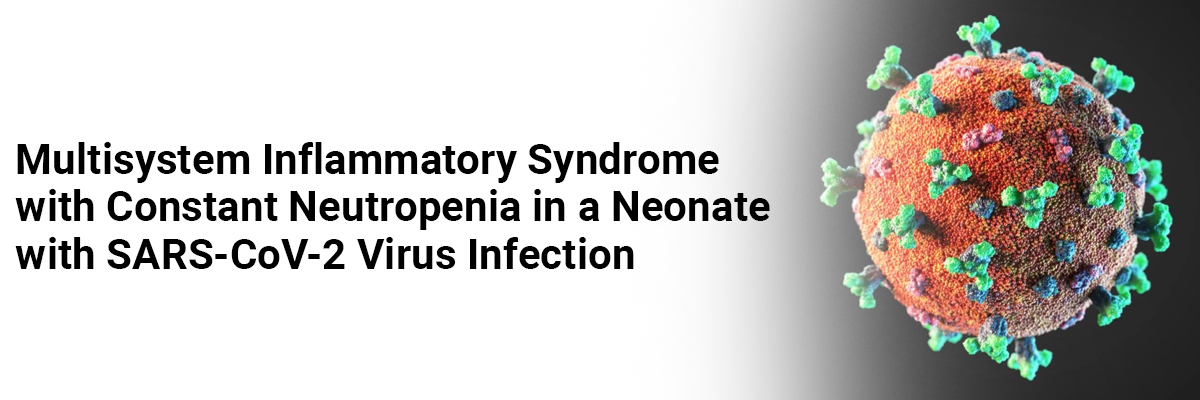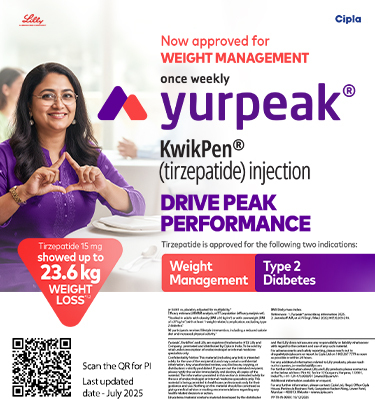
 IJCP Editorial Team
IJCP Editorial Team
Multisystem inflammatory syndrome with constant neutropenia in a neonate with SARS-CoV-2 virus infection
A report describes a case of a 19-day-old male neonate who presented with complaints of fever and loose stools for one day. His parents denied any history of cough, decreased oral intake, difficulty in respiration, or abnormal movements.
The patient was born to a 36-year-old second gravida mother at 39 weeks gestation by LSCS. His mother had pregnancy-induced hypertension and gestational diabetes mellitus and also described an episode of upper respiratory tract infection one week before her delivery. The baby was asymptomatic and remained healthy till day 17 of life; however, on day 18 of life, he developed high-grade fever with loose stools 15–16 times.
At the time of admission (Day 19) baby displayed a fever (axillary temperature of 38.4 degree Celsius), was normotensive (Mean blood pressure 58 mmHg), and did not have respiratory distress (SPO2 96% in room air). He displayed no gross congenital malformation with a normal cardiovascular, respiratory, and neurological examination.
The baby underwent lab investigations and was commenced on full feeds and IV antibiotics empirically for suspected sepsis. His Chest x-ray, Blood gas analysis was unremarkable, and he was negative for SARS-CoV-2 infection at the time of admission, while his mother tested positive for SARS-CoV-2 infection (asymptomatic) and was isolated at home. The Father of the baby tested negative.
Baby's aspartate aminotransferase, alanine aminotransferase, erythrocyte sedimentation rate (ESR), prothrombin time (PT), activated partial thromboplastin time (APTT), blood urea and serum creatinine were within normal limit; however C-reactive protein (CRP) was raised. He also had hyponatremia and hypoalbuminemia. His fever spike persisted for the next 48hr despite being on antibiotics and paracetamol. His urine routine & microscopy, cerebrospinal fluid examination, and Blood and urine culture came normal and sterile, respectively.
The baby developed a rash over the forehead and cheeks on day 2 of admission. Given persistent fever without a focus with high CRP, MIS-C-neonatal was suspected and worked up for the same.
His Echocardiography was normal, and Electrocardiogram revealed sinus rhythm. SARS-CoV-2 IgG antibody titre was 1.47; Serum ferritin, D-dimer, and interleukin-6 were raised. Incidentally, his absolute neutrophil count (ANC) showed a decreasing trend.
Given persistent fever, diarrhea, and rash, no obvious microbial etiology of inflammation, an elevated inflammatory marker, hyponatremia, hypoalbuminemia, and an epidemiologic link to SARS-CoV-2 infection, the patient received a diagnosis of MIS-C-Neonate.
He received Immunomodulatory therapy with intravenous immunoglobulin (IVIg) 2 g/kg on day 3 of admission along with aspirin in antiplatelet dose. His fever subsided within 24 hours of IVIg administration, diarrhea resolved, and inflammatory markers came down in the next 24 hours. The baby was relieved from antibiotics after five days. He remained hemodynamically stable throughout his stay and did not require any respiratory support.
He received a discharge on day 6 of admission on exclusive breast feeds and antiplatelet therapy with the advice of deferment of immunization with live vaccines due to IVIg administration. Post-discharge after five weeks, the baby remained afebrile and active, with normal 2-D Echo. His neutropenia resolved without any complications.
Diwakar K. et al. Multisystem Inflammatory Syndrome with Persistent Neutropenia in Neonate Exposed to SARS-CoV-2 Virus: A Case Report and Review of Literature. 2022 : 373 – 377.

IJCP Editorial Team
Comprising seasoned professionals and experts from the medical field, the IJCP editorial team is dedicated to delivering timely and accurate content and thriving to provide attention-grabbing information for the readers. What sets them apart are their diverse expertise, spanning academia, research, and clinical practice, and their dedication to upholding the highest standards of quality and integrity. With a wealth of experience and a commitment to excellence, the IJCP editorial team strives to provide valuable perspectives, the latest trends, and in-depth analyses across various medical domains, all in a way that keeps you interested and engaged.






















Please login to comment on this article